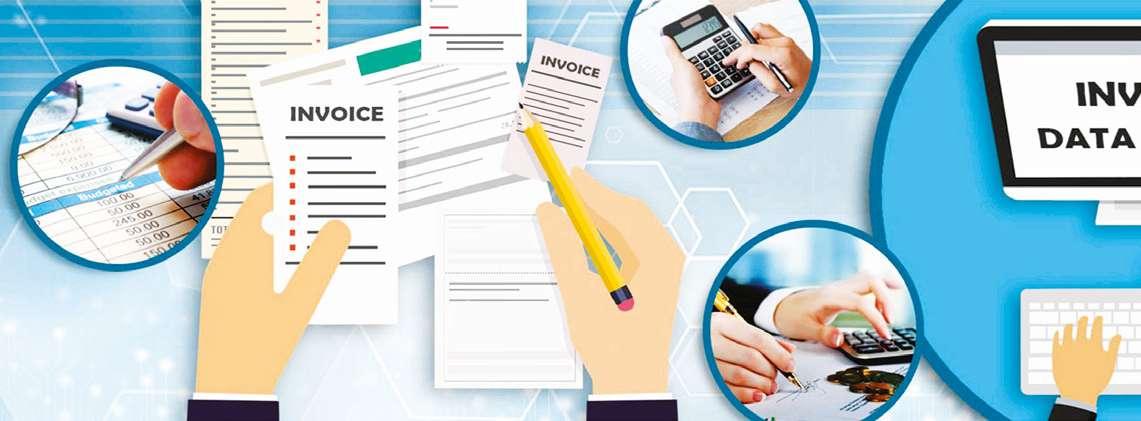
4 minute read
New regulations on application of e-invoices
tHuy lInH
Regulation on application of e-invoices
Advertisement
On 19 October the government issued Decree 123/2020 guiding invoices and documents, including e-invoice related matters. One of the decree’s notable points is a delay of the deadline for compulsory implementation of e-invoices from 1 November 2020 until 1 July 2022. This delay gives some breathing room for companies which have not yet implemented this measure.
MANDATORY USE OF E-INVOICES FROM 1 JULY 2022
Decree 123/2020/ND-CP abolishes Clauses 2 and 4, Article 35 of the Government Decree 119/2018/NDCP on the mandatory application of e-invoices from November 1. According to the decree, the government encourages agencies, organisations and individuals that satisfy the information technology infrastructure to apply the provisions on e-invoices and documents outlined in the decree before 1 July.
Due to the decree’s effective date of 1 July 2022, businesses and economic organisations that have notified the issuance of pre-printed invoices, self-printed invoices and e-invoices without the tax authority's code, or have registered for the application of e-invoices with the tax authority's code, or purchased invoices from the tax authority before the issuing date of this decree, are still allowed to use these invoices until June 30, 2022, and carry out the procedures for invoices under Decree 51/2010/ND-CP and Decree No. 04/2014/ND-CP of the government on invoices for selling goods and services.
From the issuing date of this decree to 30 June 2022, if the tax authority has requested the business establishment to use e-invoices, but the business establishment has not yet met the information technology infrastructure and continues to use paper invoices, the business establishment shall send invoice data to the tax authority according to the form enclosed with the value-added tax declaration.
The tax authority will build data on invoices of the business establishments to put into the invoice database and post them on the General Department of Taxation’s Portal for the search of data on invoices.
For newly established business establishments, from the issuing date of decree to 30 June 2022, if the tax authority has requested the business establishments to apply e-invoices according to regulations in this decree, the business establishments shall comply with the tax authority’s guidance.
If the business establishments have not yet met conditions for information technology infrastructure but still use paper invoices, they shall comply with provisions in the government’s Decrees 51 and 04.
HOw TO MANAGE AND USE E-INVOICES?
Decree 123/2020/ND-CP stipulates the management and use of invoices when


selling goods and providing services; the management and use of vouchers when carrying out procedures on tax, fee and charge collection, and regulates the tasks, powers and responsibilities of agencies, organisations and individuals in the management and use of invoices and vouchers.
Specifically, Decree 123 stipulates the principles of making, managing and using invoices and vouchers. Accordingly, when selling goods or providing services, the seller must issue an invoice to the buyer (including goods or services used for promotion, advertising, or sample goods; goods or services used as gifts, donations, or goods used for exchange and salary payment for workers, except for goods used for internal circulation to continue the production process). The invoice must state the contents using invoice symbols and include a form following the standard data format of the tax authority.
In addition, when deducting personal income tax and collecting taxes, fees and charges, the collector must make tax deduction vouchers or tax, fee and charge receipts including a full prescribed list of contents to provide to the payer.
If the e-receipt is applied, it must be in the standard data format of the tax authority. If individuals authorise tax finalisation, personal income tax deduction vouchers are not issued.
For individuals who do not sign a labour contract, or sign one of less than three months, the employer may choose to issue a tax deduction voucher for each tax deduction, or issue a tax deduction voucher for multiple deductions for each tax calculation.
For individuals signing labour contracts for three months or more, the employer shall only issue to individuals one tax deduction voucher within a single tax period.
The decree specifies that when using invoices and receipts, enterprises, economic organisations, other organisations, business households and tax, fee and charge collectors must register to use them with the relevant tax authority, or announce the issuance according to regulations. For pre-printed invoices and pre-printed receipts issued by the tax authority, the tax authority shall notify the issuance.
The Decree also stipulates that organisations, businesses and households must report the use of invoices purchased from the tax authority and the use of pre-printed receipts, self-printed receipts and receipts purchased from the tax authority.
Notably, the goods seller or the service provider acts as an enterprise, an economic institution or other institution authorised by a third party for making e-invoices for selling goods and providing services. That e-invoice must state the name of the seller as the authorising party. The authorisation must be completed in writing by the authorising party and the authorised party and must present information on that e-invoice.
If the authorised e-invoice doesn’t include the tax authority’s code, the authorising party must send the e-invoice data to the tax authority via service providers.










